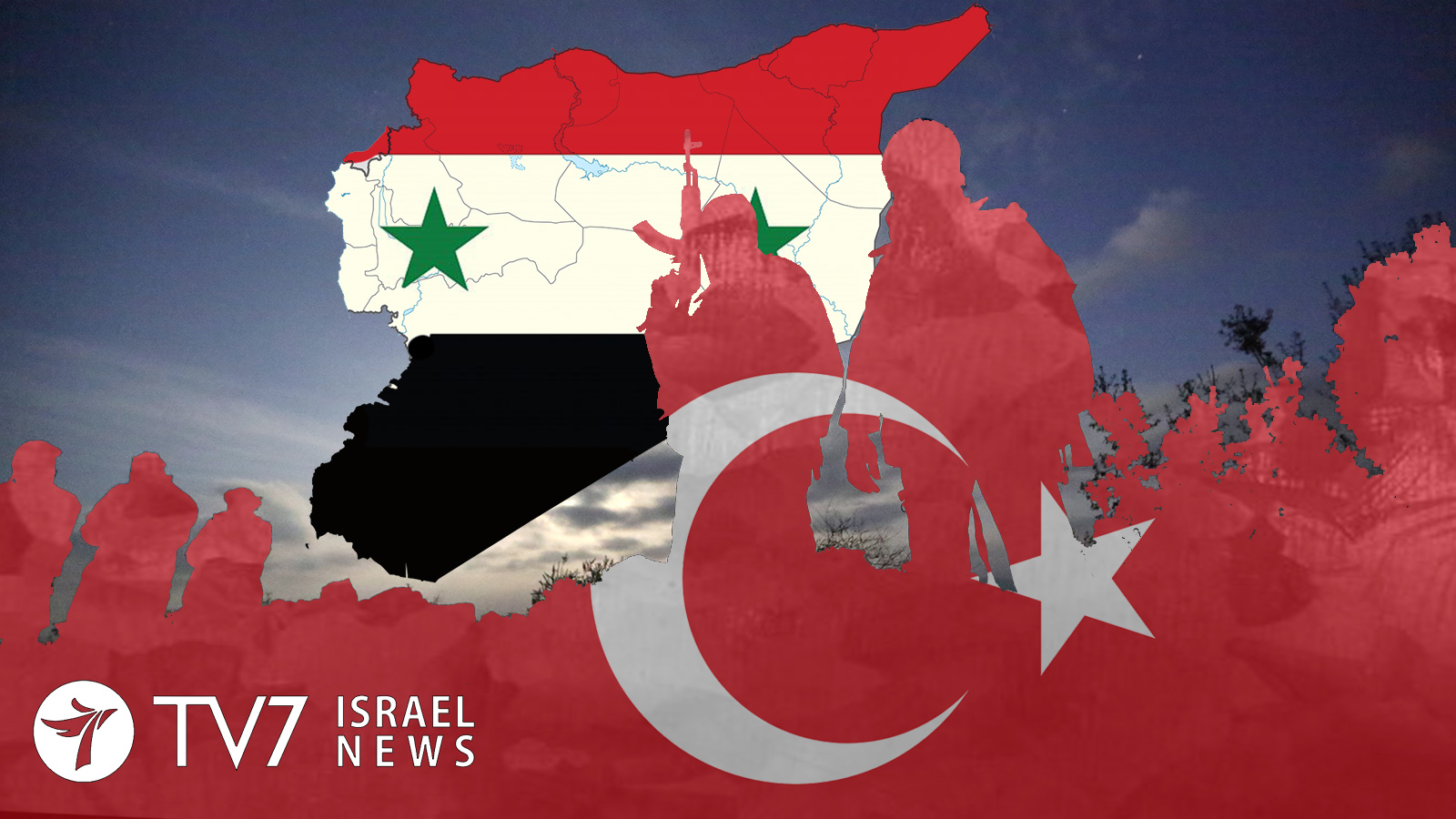Turkey’s military had launched an offensive against northeastern Syria last night near the border with Iraq.
Local sources report that Turkish artillery batteries opened fire toward positions belonging to the Syrian Democratic Forces, a Kurdish-led alliance that operated for the past several years as the major ground force of the U.S.-led coalition against the Islamic State. Turkish President Recep Tayyip Erdogan underscored that his nation is still holding talks with an American delegation over Ankara’s so-called “safe zone” along its border with Syria viewed as vital for Turkish security. “U.S. delegations and our delegations held talks and still do. This will continue with the same determination after last night’s call. We have a decision that we made. We had said that we may come one night,” the Turkish President said.
Erdogan nevertheless emphasized that these talks will not delay the military operation in northeast Syria. The Turkish leader also announced his plan to visit Washington early next month to hold talks with his American counterpart President Donald Trump, for what he said would be “face-to-face meetings [that] will allow us the chance to discuss in depth the relations between Turkey and the United States, as well as the developments in the region.”
Meanwhile in Washington, U.S. President Trump insisted that he is not ‘siding’ with NATO ally Turkey over the long time U.S.-backed SDF militias, which are predominantly Kurdish; regarding his decision to pull-out a remaining 50 U.S. special forces from Syria. He said: “Well I’m not siding with anybody. We’ve been in Syria for many years. Syria was supposed to be a short-term hit. Just a short-term hit. We were supposed to be in and out. That was many, many years ago. And we only have 50 people in that area – it’s a small sector. And I don’t want those 50 people hurt or killed or anything. I don’t want anything bad to happen to our people and I told that to President Erdogan. I said that – Don’t hurt any of our people. Any of our people get hurt, big trouble.”
President Trump further revealed that he warned Turkey not to exceed its declared operational intentions, or it would suffer an American response he asserted would lead to “an extremely decimated economy.” That said, the American President reiterated that he will withdraw the U.S. forces from the area for their own protection, while stressing that “Right now we’re at a position where if Turkey does anything out of what they should be doing, we will hit them so hard in the economy; but when you talk about soldiers, we only had 50 soldiers in the area. I think the area was, it’s a very small area and very small area, but we had 50 soldiers there. I don’t want them to be in a bad or a compromising position. And I will tell you this, everybody respects our country again. If we want to go in, if we have to go back for any reason – because bad things happen – but we’re 7,000 miles away. These ISIS people – whatever you want to call them – these people are right there. They’re right there. They’re touching many of these countries that I just named. Iran is an example. Hates ISIS, and ISIS hates Iran. Iraq, you know all about that. Turkey, Syria -let them take care of it. Let them take care of it. We want to bring our troops back home.”
Despite President Trump’s declared intention to return the American forces back to the United States, a senior U.S. administration official denied that the Washington would immediately redeploy its troops from Syria. According to the source, who spoke to a select-group of reporters in the American capital on condition of anonymity, “the 50 combat troops would be relocated from the border with Turkey to other American bases in Syria.” The official also underlined that the decision should not be construed as American support for a Turkish military operation but, rather as recognition of the fact that Turkey intends to act and that, as a consequence, the American troops needed to be removed from the danger zone. The official further argued that “anyone who says that President Trump has given Turkey a green light to carry out a massacre is being irresponsible.”
Turning to Brussels, where The European Union called on Turkey to exercise restraint – while warning Ankara that even though its security concerns are legitimate that a military operation in northeast Syria “will exacerbate civilian suffering and lead to massive displacement” and “also risk severely undermining current political efforts.” The EU further urged the so-called Astana guarantors, consisting of Russia, Turkey and Iran, to ensure a cessation of hostilities, the protection of civilians, and unhindered safe and sustainable humanitarian access through all of Syria. According to EU Spokeswoman Maja Kocijancic: “the renewed armed hostilities in the Northeast will not only exacerbate civilian suffering and lead to massive displacement but will also risk severely undermining current political efforts which we, as you know, support. We have urged and continue to urge the Astana guarantors – which include Turkey – to ensure a cessation of hostilities, the protection of civilians, and unhindered safe and sustainable humanitarian access through all of Syria.”
